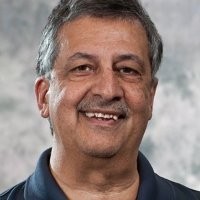This past week, Jordan's King Abdullah II began meetings with President Barack Obama and leaders of the American government to discuss a wide menu of topics from the growing turmoil in Syria to the uncertain negotiations between Israel and Palestine.
King Abdullah was to meet with Obama on Friday, Feb. 14, in California at Sunnylands, the Annenberg Retreat in Rancho Mirage, which is sometimes referred to as the President's West Coast Camp David.
It's a big deal. Obama will address King Abdullah's concerns, including reports that Israel plans to maintain a presence in the Jordan Valley in the West Bank on the west side of the Jordan River.
Jordan signed a peace accord with Israel in 1994 and has respected the agreement ever since, serving as a blueprint of what future relations could be like between Palestinians and Israelis if a peace accord is finally reached.
So why would Israel want to maintain troops along the border with Jordan? What kind of message does Israel send regarding trust, or lack of trust? Clearly, the Israeli commitment to peace is wobbly. Some might even argue, it doesn't exist.
But besides the Middle East topics Obama and King Abdullah plan to discuss, one more issue rises on the horizon, an issue that directly relates to the abuse and discrimination that Arab-Americans continue to experience in their adopted country, the United States.
Sunnylands happens to be about 20 miles to the north of Coachella Valley, which has also been in the news lately involving a battle over anti-Arab, racist images.
Just after the turn of the 20th century, Arab immigrants from the Middle East began to settle there to nurture date farms. They brought date palms and planed them in the 1930s, bolstering the region's agricultural economy.
They were proud of their Arab heritage. And in that spirit, and in the aura of the then popular image portrayed by Hollywood silent screen actor Rudolph Valentino, their local high school adopted the image of the "Arab" as their athletic symbol.
Today, most of the original Arab immigrants have relocated to other areas. The image of the "Arab" mascot has changed and today it is represented by a scowling, angry Arab caricature with one tooth that feeds into the growing animosity that continues to build against Arab-Americans and Muslims.
Additionally, the community of Coachella Valley is now predominantly Hispanic, and over the years some Hispanics have been unsympathetic and unsupportive of Arab-Americans needs.
Many Hispanics are not pro-Arab. It stems from the fact that Hispanics have often been the target of discrimination, especially after Sept. 11, 2001 when "Patriotic Americans" attacked anyone who looked Arab or Middle Eastern. And no other ethnic group is more often confused with Arabs than Hispanics.
During the years of turmoil that began with the American war on Iraq's dictator Saddam Hussein, and in the subsequent conflicts in the Middle East before and after Sept. 11, 2001, Hispanics have made up a large percentage of Americans who volunteered for military service.
Since there is no draft, the U.S. military has relied on volunteer enlistments to build up their military strength. When the economy went bad before and after Sept. 11, 2001, minorities often bore the heaviest burden dominating unemployment statistics that grew during the weakening economy.
Enlisting in the U.S. military for many ethnic groups, including Hispanics, was an opportunity to survive the economic troubles with a job, health insurance benefits and with a consistent dependable pay check.
The combination of American anger after Sept. 11, and the weariness of war on the soldiers who fought, has played heavily into fueling the animosity against Arabs. Since Sept. 11, 2001, discrimination and anger against Arab-Americans and Muslims has increased dramatically.
That may explain why the officials at Coachella Valley High School are seemingly unreceptive to calls for the school to change the image of their mascot.
Universities and professional sports teams across the country have shown sympathy for growing feelings against sport steams using the names of Native-Americans to symbolize their teams. But for some reason, the same empathy against anti-Arab stereotypes is missing.
It would be hard for President Obama to find a place in America devoid of anti-Arab racism. But certainly, the bigotry against Arabs symbolized by the Coachella mascot demonstrates how little those issues concern American leaders.
Coachella Valley Unified Schools Superintendent Darryl Adams has said the district is reviewing the mascot controversy, suggesting there might be change. Maybe in April. Adams was adamant the meeting of President Obama and King Abdullah in neighboring Sunnylands would not push the district to expedite the process.
Jordan's King Abdullah has been among the most pro-American Arab leaders in the Middle East, next only to Saudi Arabia, which has routinely intervened to help alleviate economic hardships on Americans caused by rising oil prices.
Both Jordan and Saudi Arabia have done much to fight extremism and to support moderation, especially to support America.
Maybe the civic leaders of Coachella Valley might consider all this as they stand firm against acting to change what has become a symbol of anti-Arab animosity that has become accepted and mainstream in America.
Discrimination is not a small issue. It is as important as achieving peace itself. Peace means nothing if people do not respect each other.
Ray Hanania is an award-winning Palestinian American columnist for the Saudi Gazette and the managing editor of The Arab Daily News at www.TheArabDailyNews.com. Follow him on Twitter @RayHanania. To find out more about Ray Hanania and read features by other Creators Syndicate writers and cartoonists, visit www.creators.com.






View Comments